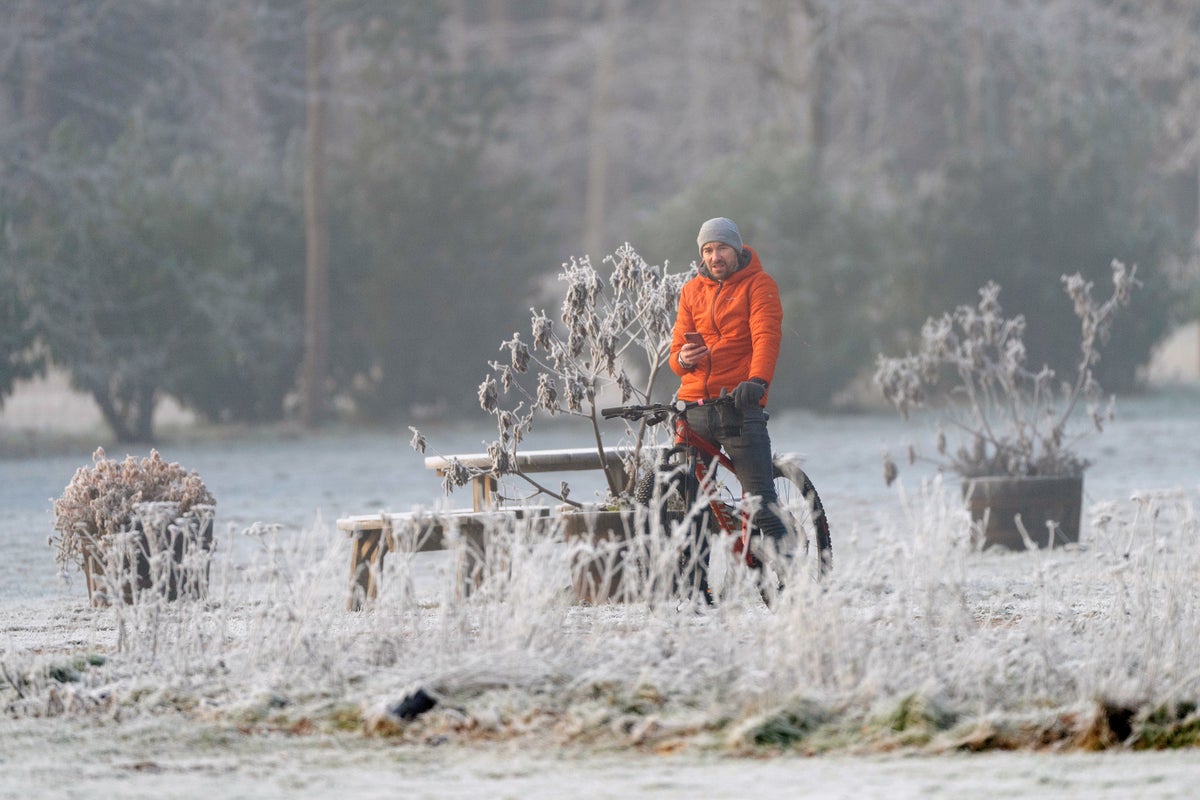Get the free Morning Headlines email for news from our reporters across the world
Sign up to our free Morning Headlines email
The National Grid will offer discounts on bills for households who cut their use of energy during peak times as demand rises during the cold weather.
The electricity grid generator is getting ready to activate its Demand Flexibility Service for an hour on Monday. The scheme encourages people with smart meters to cut down on their electricity use during peak times.
Energy suppliers will effectively pay households who have signed up around £3 for every unit they save. The scheme will run between 17:00 and 18:00 GMT on Monday.
Twenty-six suppliers have joined the scheme, including British Gas, EoN, Octopus Energy and EDF, and hundreds of thousands of households have signed up to take part.
National Grid ESO is also readying coal power plants in anticipation for increased demand for energy as the cold snap continues.
They said that they have “instructed coal-fired power units to be available to increase electricity supplies should it be needed”.
Recommended
- UK weather: Air pollution alert issued as freezing fog to descend across England
- Mapped: Where freezing fog will hit UK this weekend
- Cold weather payment checker: How to find out if you are owed one
National Grid ESO added that “electricity supply margins” are expected to be tighter than normal on Monday evening.
It is thought that the Drax power station in North Yorkshire and at West Burton in Nottinghamshire have been instructed to start warming up.
Three coal plants, which are on standby, had been set for retirement this year. However their lives were extended through this winter in a bid to bolster Britain’s energy security during the crisis caused by the war in Ukraine.
There is a yellow warning in place in England for freezing fog on Monday, covering Yorkshire, the southeast and the Midlands.
Visibility could dip as low as 50m and forecasters have warned of an increased chance of accidents or injuries. Drivers have been told to expect probably slower travel times.
Some are now worrying Britain could face a longer period of cold weather in February if a polar vortex forms.
This weather phenomenon was partly responsible for the Beast from the East that hit Britain in late February and early March in 2018. It also contributed to December 2010’s Big Freeze.
National Grid ESO said they were instructing three coal plants to be put on standby ahead of ‘tight’ energy supply margins on Monday
(PA)
Britain could face even more extreme weather due to a rare phenomenon known as sudden stratospheric warming, which would shunt large quantities of cold low-level polar air over the UK.
However, speaking to The Independent The Met Office suggested such predictions should be treated cautiously.
“For the week ahead in the northern half of the UK we’re actually seeing temperatures above normal, and that will continue until about Thursday.
Recommended
- Dog plays in snow as cold snap sends temperatures plummeting
- Martin Lewis reveals three hours you should never use your washing machine
- Aristocrat mother on the run was ‘brainwashed’ by Nigerian preacher, friend claims
“In the south we’re still on the rather cold side but I think with a little bit more in the way of cloud developing over the next few days. Nights probably won’t be as cold as they have been,” said Craig Snell, senior operational meteorologist at Met Office.
Referring to the sudden stratospheric warming, Mr Snell said: “It’s too early to say, one if we will have a stratospheric warming, two how that strong that stratospheric warming would be, and three how that influences the UK. Unfortunately, we won’t know that until we get into February.”
✕
Subscribe to Independent Premium to bookmark this article
Want to bookmark your favourite articles and stories to read or reference later? Start your Independent Premium subscription today.
SubscribeAlready subscribed? Log in
Popular videos
{{/link}}

